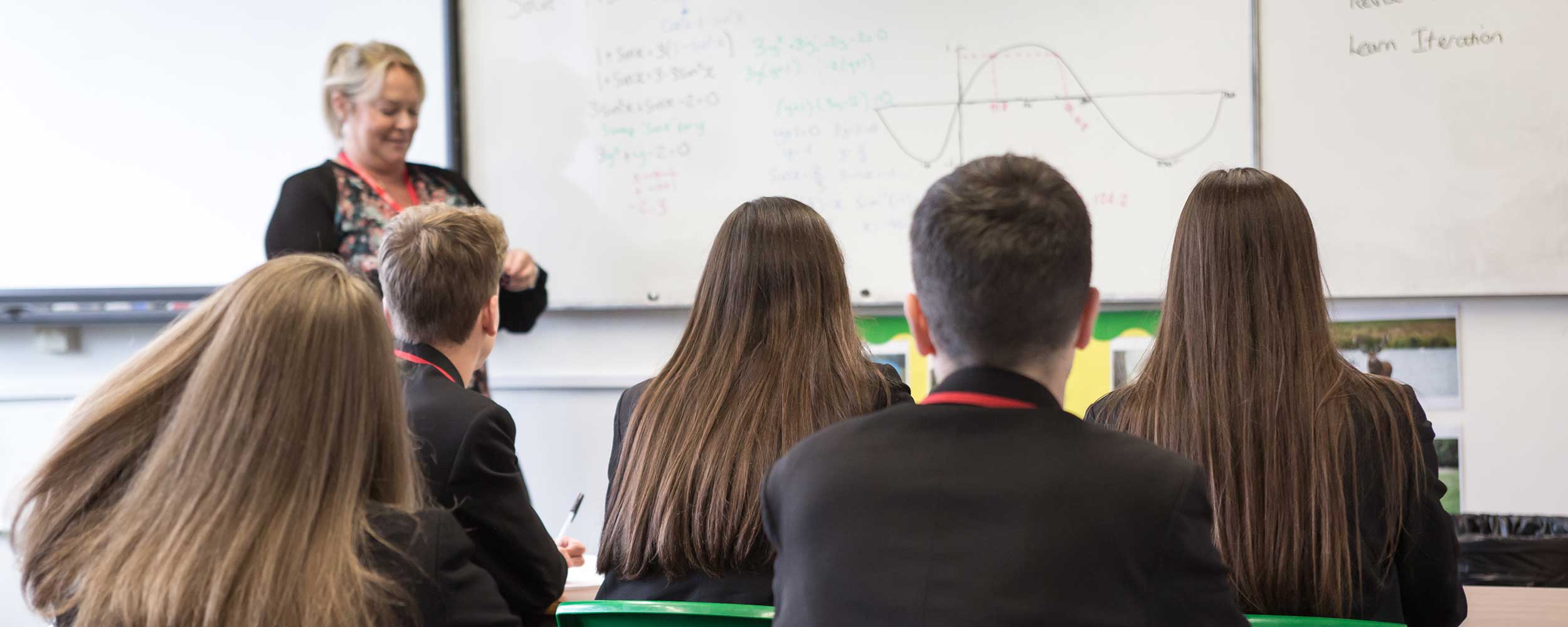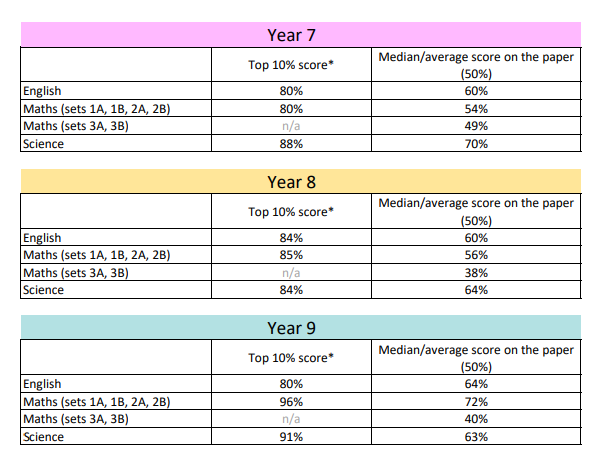
KS3
Key Stage 3 is a crucial time in a student’s school life – it is during these formative years that students experience a broad and balanced knowledge-rich curriculum that provides them with the cultural capital for later success, both in KS4 and KS5, but also in their adult life. We have a 3-year KS3 which ensures students experience a broad and balanced curriculum where creative subjects such as the visual and performing arts, as well as academic subjects are highly valued and protected.
In Year 7, 8 & 9 students are assessed in a variety of different ways, however assessment takes place continuously whether through teacher feedback on homework, whole-class feedback after a class assessment or question-level analysis following the end-of-year exams. Students are assessed verbally, practically and in written forms whether it be by their teacher, by their peers or through self-assessment, and this can be formative or summative. All Year 7s and in-year admissions in other year groups complete a reading test when they start. This allows us to quickly identify any difficulties with reading, especially where it is likely to impact access to the curriculum, and swift intervention is put into place to address any gaps.
The KS3 exams take place twice a year (January and June) and are formal exams completed with class teachers in exam conditions, whereby all students sit a standardised exam (unless tiered such as in Maths). In January students sit exams in English, Maths and Science. In June students sit exams in all EBacc subjects: English, Maths, Science, History, Geography, Religion, Philosophy & Ethics, French, German (Year 8 & 9) and Spanish (Year 8 & 9). Following marking and moderation of students’ assessments, we report % scores home to parents as well as the median (average) score for the year group and the top 10% score so that parents can see how their child is doing in relation to their peers. Teachers go through papers with classes and subsequently send them home for parents. We strongly recommend parents to go through papers with their child and discuss strengths and weaknesses of that particular assessment. Please click here for an example KS3 exams report.
We send an academic progress report home to parents 3 times per year which details the level students are achieving in each of their subjects – these are called ‘emerging grades’ (platinum, gold, silver and bronze) and are the grade a teacher (with professional judgement) believes that student will reach by the end of the academic year. Emerging grades include fine grading: a ‘+’ indicates that a student may reach the grade above; a ‘-‘ indicates they are at risk of dropping to the grade below. Emerging grades that match the overall target at the top of the report indicate that they are on track, but it is important to remember that the overall target will not fit perfectly with every subject – a student might have made particularly strong progress in some subjects meaning they are above target and may find another subject more difficult and be just below target. Students who make good progress in KS3 are likely to have the same target grade and a matching emerging grade throughout Year 7 to 9 because the criteria for each grade become increasingly harder/more complex each year.
It also includes an ‘Attitude to Learning’ grade which indicates on a scale of 1-4, students’ engagement with that subject and any concerns there might be. It is our expectation that every student should have at least ‘Good’ Attitude to Learning (AtL) grades, enabling them to make good progress. To clarify which, if any, areas may be of concern or needing improvement, there are additional columns which will be marked with an ‘X’ if required. If columns are blank, this indicates that there are no concerns. If your child has any AtL grades that are less than good or any concerns in the 5 boxes, please speak to them about it and agree what they can do to rectify the situation. Click here for information about looking at a progress report with your child.
If parents are separated, (please ensure we have both parents’ email addresses in this instance), we are able to send progress reports to both parents. Click here for an example progress report.
Targets are set and reviewed each academic year and can be either Platinum, Platinum/Gold, Gold, Gold/Silver, Silver, Silver/Bronze or Bronze. Targets are created using data from the KS2 SATs taking into account students with similar profiles in previous cohorts. For year groups affected by the pandemic when KS2 tests did not take place, we have used progress report data, exam scores, CAT test scores and teacher judgements to set targets. All targets are reviewed at the end of each academic year and can be increased where students have consistently surpassed them in order to stretch and challenge.
January 2024 top 10% and median scores from the KS3 exams.
The top 10% is of the whole year group, with the exception of the 3A/3B Maths paper where the median score is representative of the students who sat that paper.
